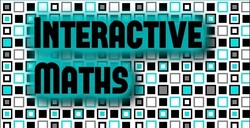I finished reading the excellent ebook MARGE, and immediately saw links to the EBC model I was introduced to in the Science of Learning course I did earlier in 2018. I wrote this post comparing the two models, which has been one of my most popular posts.
I have recently finished reading the book Why We Sleep by Matthew Walker (@sleepdiplomat). It was an absolutely fascinating read which covered the theories of why we sleep, how we sleep and how to help ourselves sleep better, and of most interest, the side effects of not getting enough sleep. Many of these were scary, and the studies shared show that sleep deprivation is a serious matter.
There are correlational studies between lack of sleep and a whole host of health problems (cardiac problems, diabetes, etc). There are also links with many mental health disorders (see here for more on this). Going without sleep for 22 hours leaves you in a similar cognitive state as being legally drunk. Being sleep deprived affects your appetite, making you crave worse foods, and also preventing your body's natural "feeling full" signposts.
But the most relevant to us as teachers was the impacts on learning. When we are awake certain toxins build up in our brain, and when we sleep these are cleared away. Without adequate sleep these toxins build up and prevent us from learning new things. Even worse, one of the main purposes of sleeping seems to be consolidating the learning from the previous day, so with insufficient sleep we get a double whammy on our ability to learn: we will forget the things we learned the previous day; and we will be in a worse position to learn new things as our brain is full of toxins.
Another interesting point for (secondary) education is the natural sleep cycles of teenagers, which are later than those of adults. In fact, teenagers naturally sleep in until later (I know, we all know this), but the important thing is that this is not them being lazy, but rather their biology is forcing this upon them. Whereas adults naturally sleep 10pm - 6am (give or take), teenagers naturally sleep 12am - 8am. This is important when considering school start times, as starting too early can actually be very detrimental to the learning experience of teenagers who will probably be sleep deprived if required at school before 8:30 am (as recommended by the CDC).
The book truly was a sobering and enlightening read, and I would highly recommend it to anyone (not just educators). As educators I think it is our responsibility to teach and promote good sleep hygiene to our students.
This year the first cohort of students that I taught the IB Mathematical Studies course to finished their course. I was very happy with their results, all of them except 1 achieving or surpassing their target grade.
As the new year started I tweeted a thread showing some of the things that my site http://generator.interactive-maths.com/ can do.
As you head back to school, check out my site which creates random questions on more than 50 #maths topics.https://t.co/D1z3LA46VF#mathschat #MTBoS #mathchat pic.twitter.com/e3lxaugIJJ
— Dan Rodriguez-Clark (@InteractMaths) January 4, 2019
I also posted a thread on some of the highlights of the blogs/tweets from 2018.
THREAD As 2019 starts, here is a reminder of some of the things I have blogged/tweeted about this year:
— Dan Rodriguez-Clark (@InteractMaths) January 8, 2019
This made me very happy as Simon Singh is a legend, and I love all his books. The Code Book was one of the reasons I became so interested in cryptography in the first place, so for him to recommend my site (https://crypto.interactive-maths.com/) was awesome.
Something for maths teachers (and others). May help introduce maths into the classroom. https://t.co/mCLZOc209Z
— Simon Singh (@SLSingh) January 13, 2019
 RSS Feed
RSS Feed
